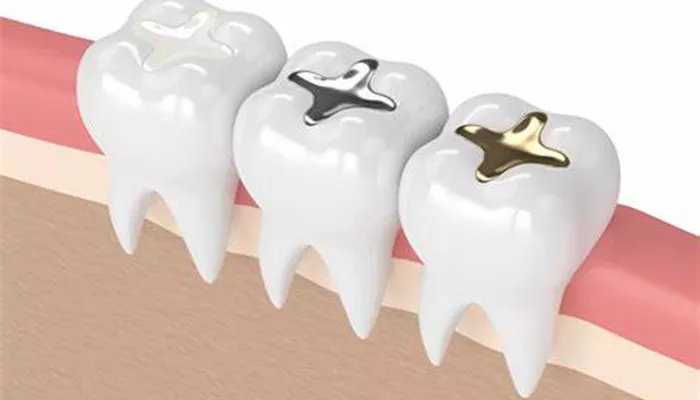Wisdom teeth, also known as third molars, are the last set of molars that typically emerge in late adolescence or early adulthood, usually between the ages of 17 and 25. For many people, the arrival of these teeth can lead to discomfort and complications. The question arises: must wisdom teeth be surgically removed? This paper explores the reasons for and against the surgical removal of wisdom teeth, the potential complications of not removing them, and the criteria that can help determine whether extraction is necessary.
Understanding Wisdom Teeth
What Are Wisdom Teeth?
Wisdom teeth are the third set of molars located at the back of the mouth. They are called “wisdom” teeth because they usually appear at a more mature age, when a person is supposedly wiser. These teeth can vary in size, shape, and number, with some individuals having all four, some having none, and others having a mix.
Evolutionary Perspective
From an evolutionary standpoint, our ancestors had larger jaws that could accommodate more teeth. These extra molars helped them chew a rough diet consisting of roots, leaves, and meat. However, as human diets and jaw sizes have changed over time, many people now have jaws that are too small to accommodate wisdom teeth, leading to potential dental issues.
Reasons for Surgical Removal
Impaction
One of the primary reasons for the surgical removal of wisdom teeth is impaction. Wisdom teeth can become impacted when there is not enough space in the jaw for them to emerge properly. Impacted teeth can be partially or fully trapped beneath the gum line, causing pain, swelling, and infection.
Crowding
Another reason for extraction is crowding. As wisdom teeth attempt to emerge, they can push against adjacent teeth, leading to misalignment and overcrowding. This can undo the effects of previous orthodontic work, requiring additional treatments to correct the alignment.
Infection and Gum Disease
Impacted wisdom teeth can create pockets in the gums that trap food and bacteria, leading to infections and gum disease. This condition, known as pericoronitis, can cause significant pain and swelling and may require immediate dental intervention.
Cysts and Tumors
In some cases, impacted wisdom teeth can lead to the development of cysts or tumors in the jaw. These growths can damage surrounding teeth and bone, necessitating surgical removal not only of the wisdom teeth but also of the affected tissue.
Preventive Measures
Many dentists recommend the proactive removal of wisdom teeth to prevent potential complications. This approach is especially common for younger patients, as the risks associated with surgery tend to increase with age.
Arguments Against Surgical Removal
Asymptomatic Wisdom Teeth
Not all wisdom teeth require removal. Many individuals have wisdom teeth that emerge without causing any problems. If the teeth are healthy, properly aligned, and do not cause crowding or discomfort, some dental professionals may advise against surgical removal.
Risks of Surgery
Like any surgical procedure, the extraction of wisdom teeth carries risks. These can include complications such as infection, dry socket (a painful condition that can occur after tooth extraction), nerve damage, and excessive bleeding. The decision to remove wisdom teeth should weigh these risks against the potential benefits.
Recovery Time
Surgical removal of wisdom teeth typically requires a recovery period during which patients may experience pain, swelling, and limited ability to eat solid foods. For some individuals, this recovery time may be inconvenient or challenging, particularly for those with busy schedules or responsibilities.
Cost Considerations
The cost of wisdom tooth extraction can be significant, especially if the procedure requires anesthesia or if complications arise. Patients may choose to avoid surgery to save on dental expenses, particularly if their wisdom teeth are asymptomatic.
Criteria for Removal
Dental Evaluation
The decision to remove wisdom teeth should be based on a comprehensive dental evaluation. Dentists typically use X-rays to assess the position of the wisdom teeth and determine whether they are impacted or likely to cause future problems.
Age and Development
Younger patients generally recover more quickly and with fewer complications than older patients. The roots of wisdom teeth are not fully developed in younger individuals, making extraction easier. As patients age, the roots become more entrenched in the jawbone, increasing the complexity of the procedure.
Symptoms and History
Patients who experience pain, swelling, or recurrent infections should consult their dentist about the necessity of extraction. A history of dental issues related to wisdom teeth can also indicate the need for surgical intervention.
Conclusion
The question of whether wisdom teeth must be surgically removed does not have a one-size-fits-all answer. While there are compelling reasons for extraction, including impaction, crowding, and the potential for infection, many individuals may retain their wisdom teeth without issue. A thorough dental evaluation, considering factors such as age, symptoms, and the position of the teeth, is essential in making an informed decision. Ultimately, the goal should be to maintain optimal oral health while weighing the risks and benefits of surgical intervention.
In summary, the decision to remove wisdom teeth should be individualized, taking into account the specific circumstances of each patient. Regular dental check-ups and open communication with a dental professional can help ensure that patients make the best choices for their oral health.
Related topics:

